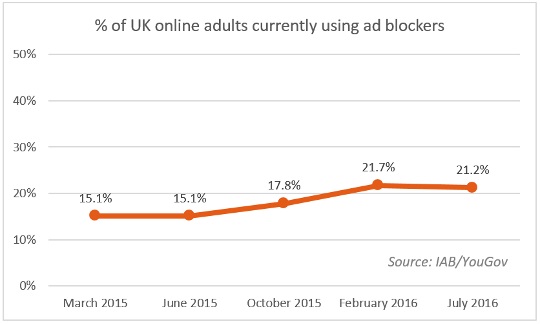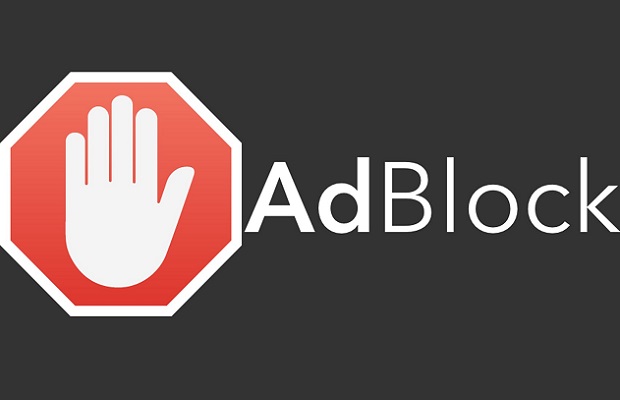Ad blocking levels have not risen in the first half of 2016, staying level at around 21%, according to new data.
The data, from the IAB and YouGov, indicates that there has been no increase in the overall number of UK adults online using ad blockers – 21% in July vs 22% in February
Trend in UK ad blocking levels
A slight increase in usage among women has been more than offset by a decline among men. 18-24s remain the most likely demographic to use an ad blocker (38%).
50% of current ad blockers say they use Adblock Plus.
There is some confusion among consumers as to what is and isn’t an ad blocker – over 1 in 5 who claim to use an ad blocker, incorrectly cited anti-virus software or ad blockers that don’t exist. Consequently, genuine ad blocking levels might be lower than reported.
“It’s encouraging to see ad blocking plateauing but it certainly isn’t a sign the industry needs to take its foot off the pedal in terms of moving to a less invasive, lighter and more user-friendly ad experience.”

Turning them off
Over a fifth (22%) of people who’ve downloaded an ad blocker no longer use it. The biggest rise in why people have turned it off is a lack of trust (up from 6% to 14% among those who’ve stopped). Women are nearly 7x more likely than men to have turned it off for this reason (27% vs 4%).
Over two-thirds (68%) of people who’ve ever used an ad blocker have received a notice asking them to turn it off.
Over half (55%) of ad blockers said they would switch it off if it was the only way to access content. 18-24s (72%) are the most likely to do this.
The “value exchange”
67% of online adults are aware that online advertising funds free content and services on many websites. 55% are aware that blocking online ads means some websites couldn’t afford to offer free access to content.
“The ‘value exchange’ message for consumers may be gaining stronger traction. Nearly 1 in 5 (18%) people say they’re less likely to block ads in the future, knowing that the alternative could mean websites start charging.”
All figures, unless otherwise stated, are from YouGov Plc. Total sample size was 2011 adults. Fieldwork was undertaken between 27th – 28th July 2016. The survey was carried out online. The figures have been weighted and are representative of all GB adults online (aged 18+).
Source: www.iabuk.net

